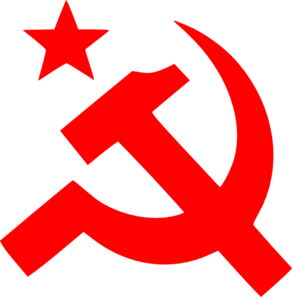
THERE is much talk about opposition unity these days. Such talk has gathered momentum after a series of meetings of various leaders of opposition parties. This comes in the background of the united stand of eighteen opposition parties in parliament during the second half of the budget session, where they all demanded a joint parliamentary committee on the Hindenburg report on the Adani group and also unitedly opposed the ED-CBI targeting of leaders of the opposition.
This united stand was also expressed when Rahul Gandhi was disqualified from the Lok Sabha membership after his conviction and sentencing in a criminal defamation case by a Surat Court. The arrest and interrogation of various other leaders of opposition parties made many realise that this was an existential struggle to save democracy from an authoritarian regime.
But the way the goal of opposition unity is being proposed and speculated upon by various political commentators and the media shows a lack of clear thinking and some unrealistic expectations.
The most simplistic idea is to gather all the leaders of opposition parties on to the one platform which would then result in an all-India front of opposition parties. Another fruitless pursuit is the zeroing in on one who could be the face of the opposition at the national level. Another tack is to advocate that the strongest opposition party in a state, whether it be a regional party or a national party, should be allowed to set the terms for an understanding with other parties which would ensure a one-to-one contest against the BJP and its allies.
All these suggestions are far from ground realities and do not take into account the complexities and the diverse character of the opposition parties.
First of all, it should be clear that opposition unity in the form of an alliance or front of all the major opposition parties cannot be forged at the national level. This erroneous idea stems from a narrow electoral outlook which sees the success of the electoral battle against the BJP as being dependent on ensuring a one-to-one fight in all constituencies. This is plain wishful thinking.
Opposition unity has to be primarily fostered by adopting a joint stand on major national and important political issues – the all-out attack on democracy and subversion of the constitution; the misuse of central agencies to target the opposition; the systematic attack on states’ rights and federalism; and the Hindutva ideology being injected in education and attacks on minorities.
These are vital and basic issues which concern the future of the country and the test of opposition unity is how far they can rally together to oppose Hindutva authoritarianism and to fight for democracy, secularism and federalism. There are also a number of significant issues where accountability of the prime minister and the government are concerned. The manner in which the Modi government has stonewalled all discussions on the Adani-Hindenburg affair in parliament with Narendra Modi refusing to even mention the name of Adani in his speeches in parliament and the refusal to constitute a joint parliamentary committee brought about widest unity of opposition parties in parliament. This must be carried forward outside parliament too.
Making the prime minister accountable for the phenomenal rise of Adani and answerable to the revelations made by the former governor of Jammu & Kashmir, Satya Pal Malik, about the Pulwama attack are such issues which can unite the opposition.
That all this time, even a meeting of chief ministers of non-BJP state governments to unitedly counter the centre’s assaults on states’ rights and federalism could not be held, indicates the lack of cohesion in the thinking of the opposition parties as a whole.
If the opposition can put forth its alternative stand on all important policy issues and in defence of democracy, secularism and federalism – that will be a substantive step in projecting a united alternative.
This should be supplemented by calls for joint campaigns and protests on people’s issues and the constant assaults on people’s livelihoods. Such calls can be observed by as many parties jointly through joint platforms and actions. In states where this is not possible, concerned parties may observe the calls separately through parallel actions. This is the realistic way to go about matters since some of the parties which may be able to give a call jointly at the national level cannot implement it jointly in some of the states.
It is these steps suggested above which would create the atmosphere for working out electoral tactics at the states level to maximise the pooling of anti-BJP votes. There are, at present, two states where the widest understanding has been forged to fight the BJP and its alliance – Tamilnadu and Bihar.
If the opposition parties are able to take a united stand on vital issues of democracy, secularism and federalism and also initiate joint actions on people’s issues, this will enhance the credibility of the entire opposition. People will begin to see them as an alternative to BJP. When the Lok Sabha elections are held, these united opposition initiatives will help all the opposition parties, even if they are not electorally allied.
That is why it is important that the present efforts at gathering all the opposition parties must move with a clear direction – of uniting on major national issues with a clear-cut alternative, fostering united actions wherever possible and mobilising to fight the BJP in the states by ensuring the maximum pooling of the anti-BJP votes.
(April 19, 2023)


